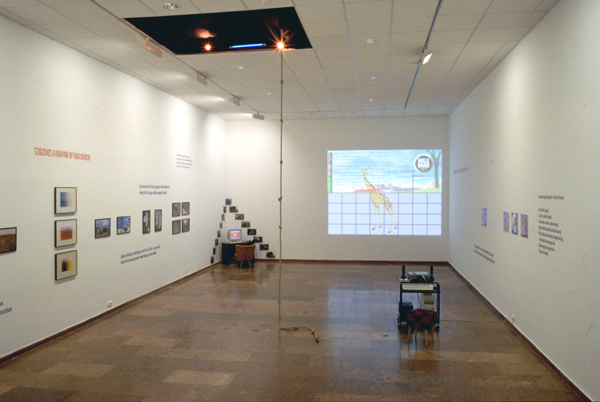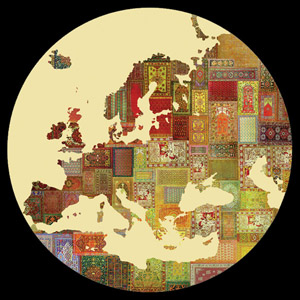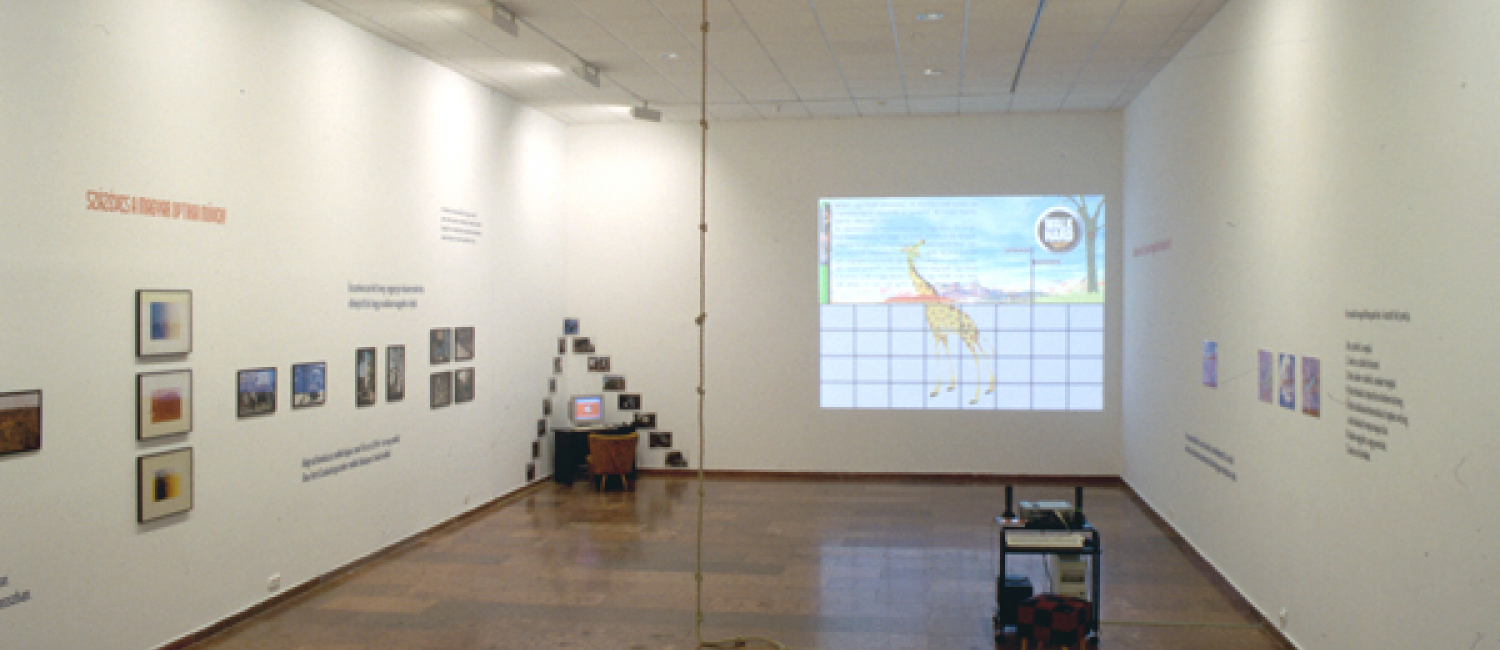“The Window Giraffe was a picture book from which we learned to read when we didn’t know how to. We learned from it that the sun rises in the east, that our hearts are on the left, that the Great October Revolution was in November, and that light comes through the window – even when it is closed.”
Péter Zilahy’s novel “The Last Window Giraffe” was first published in 1998. This was followed by a radioplay version next year. Between 1999 and 2001 it was also developed as a CD-ROM with the assistance of Tamás Fuchs and Róbert Langh at C3 – Centre for Culture and Communication. The novel has been translated into 11 languages and a German radioplay was also produced in 2000. “The Last Window Giraffe” is a lexicon of Eastern – Europe, that contains what’s been left out.”. Zilahy looks at history with the innocent eye of the child and handles the audience accordingly, the same way the regime treated the people like children. Infantilizing the subject matter he questions the mundane absurdity of the dictatorship
The very name of the Project Room at the Ludwig Museum, implies an experimental approach to setting up an exhibition. Parallel to the CD-ROM, three commissioned works have been conceived for this exhibition. The child’s perspective is among others represented by the children’s voices which welcome the visitor, the rope which one climbs to reach the moon, and the guestbook, which is an elementary school blackboard.
In addition to the interactive CD-ROM one finds paintings, photographs, interactive modules, as physical objects defining the focus of the exhibition. One centrepiece can be approached by a six meter long rope leading up to a suspended moon. With the help of a combination of UV lights and spots it can be turned into daylight picture or a night vision.
The opening of the exhibition will be a happening that relies on the active participation of the audience having mass-produced abc soup and apricot-clad spongecake rolls.
“If the US is a human melting pot, then Eastern Europe is a scrapyard.”
The release of the CD-ROM was supported by the Goethe-Institut Inter Nationes and the European Cultural Foundation.
Hungarian writers and critics about the book
(excerpts from reviews):
Gábor Németh
Once upon a time, I was on the square in front of St. Peter’s when the Pope blessed the Easter crowd. When we all got what we were there for in one-hundred and twenty-eight languages, leaning on the arm of a likeable young man, the Holy Father stepped out on the balcony. It was at that moment that a group of Japanese tourists reached the square. Their guide stepped up to me, grabbed my arm, and in broken English, asked, “Who is that man in the purple hat next to Peti Zilahy?”
Despite what I have just related, Zilahy respects neither god nor man, a state of affairs which for all practical purposes means that he can observe the world each time as if for the first time. What’s more, he will write down only what he sees, what his eyes believe, and yet the whole thing ends up profoundly serious.
Péter Esterházy
... Zilahy starts for the south and wanders around in his own past. His choice of subject is explicit and so is his concreteness (a while raven on the Hungarian literary scene), while his work is wrought through and through with a sense of multiple fictionality, a sort of as-if-ness. You’d think it was written by one of the 68-ers, as they’re called, but one who was not yet born in 68. This results in a lot of things that are serious, and a lot of things that are frivolous. The freshness of his experience comes through the text; it’s like he’d been there at every milestone, as if the book were written by a journalist with a poet’s imagination. It also feels as if it were autobiographical, yet there’s no ego-ing in it (if you’ll excuse the expression), even though he is using his own face for a mask. He is young, and he is old. And all this becomes the source of continuous tension and playfulness.
Mihály Kornis
I have not read anything so original in fifteen years. Zilahy feels and understands his age. He has a good sense of humour, and also his own inimitable style. He is writing a story, and in the meantime, he is happening himself. Péter Zilahy’s pictorial novel is a welcome novelty, and I will even venture to say the literary event of the year.
László Márton
The Last Window Giraffe is one of the most important contributions to Hungarian prose in the nineties. Péter Zilahy is driven by the passion of discovery. He discovers the idiotism of soft dictatorship in the linguistic clichés of the Kádár era, and with the same jovial, yet radical passion, in the Belgrade demonstrations of 1997 he discovers not only the carnival-like infantilism, but the missed opportunity for political transformation. The present war against Yugoslavia gives Péter Zilahy’s entertaining book a sad actuality. It teaches us who those people are over whose heads the NATO planes are flying, perhaps at this very moment.
Attila Balázs
The Last Window Giraffe illustrates beautifully where its writer has been and what he’s been up to. He knows how to see and he knows how to make others see. He can whip up scrambled eggs with his South-Slav guzla strings, not to mention other sleights-of-hand. He knows how to write an interesting book, interesting and enigmatic, and with a new form, which is a rarity. The book is even useful, extremely useful, as a contribution to environmental studies. Let us learn Balkanian, it suggests, we’re not that far removed from the subject.... Yugoslavia is the lost illusion of childhood. It lives on, but is falling apart at the seams. For Péter Zilahy, too, this is what Yugoslavia seems to mean – the lost illusion of childhood, the illusion of a lost childhood. This is how Yugoslavia continues and is “elongated” in the author of The Window Giraffe, this truly exceptional book; he says that no matter where we are headed, we run into a barrier, as if we were prisoners of an invisible force-field, prisoners of a country that we are free to leave at any time. We are all prisoners of Yugoslavia.
Péter Krasztev
As the 20th century drew to a close, we thought that travel literature had become a thing of the past, the early and 19th century writings of the British adventurers no longer of interest, while the genre itself has sunk to the level of Robert Kaplan. Then a book appeared out of the blue, a Window Giraffe, and you were forced to realize for the hundredth time that the problem was not with the genre, but those who had engaged in it. Péter Zilahy’s lyrical associations, the personal authenticity of the descriptions, the careful avoidance of stereotype cynicism, resulted not only in a very special book, but saved a literary genre from banality, and brought it back from a state of suspended animation.


